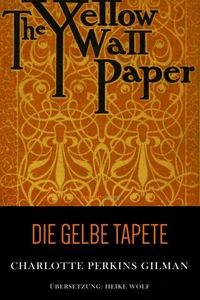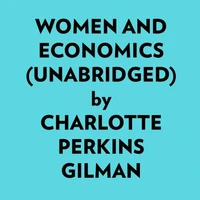WOMEN & ECONOMICS. Empowering Women Through Economic Independence and Gender Equality
Par :Formats :
Disponible dans votre compte client Decitre ou Furet du Nord dès validation de votre commande. Le format ePub est :
- Compatible avec une lecture sur My Vivlio (smartphone, tablette, ordinateur)
- Compatible avec une lecture sur liseuses Vivlio
- Pour les liseuses autres que Vivlio, vous devez utiliser le logiciel Adobe Digital Edition. Non compatible avec la lecture sur les liseuses Kindle, Remarkable et Sony
 , qui est-ce ?
, qui est-ce ?Notre partenaire de plateforme de lecture numérique où vous retrouverez l'ensemble de vos ebooks gratuitement
Pour en savoir plus sur nos ebooks, consultez notre aide en ligne ici
- Nombre de pages256
- FormatePub
- ISBN859-65--4767331-6
- EAN8596547673316
- Date de parution21/11/2023
- Protection num.Digital Watermarking
- Taille687 Ko
- Infos supplémentairesepub
- ÉditeurGOOD PRESS
Résumé
In "Women and Economics, " Charlotte Perkins Gilman explores the intricate relationship between gender and the economic structures of society at the turn of the 20th century. This groundbreaking work deftly combines sociological analysis with feminist ideology, as Gilman critiques the traditional domestic sphere that restricts women's economic independence. Employing a clear, persuasive prose style, she argues for the necessity of women'Äôs participation in the workforce, positing that their economic autonomy is essential for societal progress.
As a pivotal text in the lens of feminist economics, it challenges prevailing notions of womanhood and advocates for a redefinition of women's roles beyond mere homemakers. Charlotte Perkins Gilman was influenced by her own experiences of social and economic confinement; her divorce and subsequent advocacy for women's rights fueled her passion for reform. Educated in a progressive environment, Gilman had firsthand knowledge of the limitations imposed on women, which led her to seek a deeper understanding of the socio-economic factors that oppressed them.
Her innovative writings were informed by her earlier works, including her influential short story, "The Yellow Wallpaper, " making her a prominent voice in early feminist literature. "Women and Economics" is an essential read for anyone interested in the intersection of gender and economic theory. Gilman's incisive analysis remains relevant, encouraging modern readers to reconsider the channels through which gender inequality persists.
Her thought-provoking arguments not only enrich our understanding of historical contexts but also inspire future dialogue on women'Äôs rights and economic empowerment.
As a pivotal text in the lens of feminist economics, it challenges prevailing notions of womanhood and advocates for a redefinition of women's roles beyond mere homemakers. Charlotte Perkins Gilman was influenced by her own experiences of social and economic confinement; her divorce and subsequent advocacy for women's rights fueled her passion for reform. Educated in a progressive environment, Gilman had firsthand knowledge of the limitations imposed on women, which led her to seek a deeper understanding of the socio-economic factors that oppressed them.
Her innovative writings were informed by her earlier works, including her influential short story, "The Yellow Wallpaper, " making her a prominent voice in early feminist literature. "Women and Economics" is an essential read for anyone interested in the intersection of gender and economic theory. Gilman's incisive analysis remains relevant, encouraging modern readers to reconsider the channels through which gender inequality persists.
Her thought-provoking arguments not only enrich our understanding of historical contexts but also inspire future dialogue on women'Äôs rights and economic empowerment.
In "Women and Economics, " Charlotte Perkins Gilman explores the intricate relationship between gender and the economic structures of society at the turn of the 20th century. This groundbreaking work deftly combines sociological analysis with feminist ideology, as Gilman critiques the traditional domestic sphere that restricts women's economic independence. Employing a clear, persuasive prose style, she argues for the necessity of women'Äôs participation in the workforce, positing that their economic autonomy is essential for societal progress.
As a pivotal text in the lens of feminist economics, it challenges prevailing notions of womanhood and advocates for a redefinition of women's roles beyond mere homemakers. Charlotte Perkins Gilman was influenced by her own experiences of social and economic confinement; her divorce and subsequent advocacy for women's rights fueled her passion for reform. Educated in a progressive environment, Gilman had firsthand knowledge of the limitations imposed on women, which led her to seek a deeper understanding of the socio-economic factors that oppressed them.
Her innovative writings were informed by her earlier works, including her influential short story, "The Yellow Wallpaper, " making her a prominent voice in early feminist literature. "Women and Economics" is an essential read for anyone interested in the intersection of gender and economic theory. Gilman's incisive analysis remains relevant, encouraging modern readers to reconsider the channels through which gender inequality persists.
Her thought-provoking arguments not only enrich our understanding of historical contexts but also inspire future dialogue on women'Äôs rights and economic empowerment.
As a pivotal text in the lens of feminist economics, it challenges prevailing notions of womanhood and advocates for a redefinition of women's roles beyond mere homemakers. Charlotte Perkins Gilman was influenced by her own experiences of social and economic confinement; her divorce and subsequent advocacy for women's rights fueled her passion for reform. Educated in a progressive environment, Gilman had firsthand knowledge of the limitations imposed on women, which led her to seek a deeper understanding of the socio-economic factors that oppressed them.
Her innovative writings were informed by her earlier works, including her influential short story, "The Yellow Wallpaper, " making her a prominent voice in early feminist literature. "Women and Economics" is an essential read for anyone interested in the intersection of gender and economic theory. Gilman's incisive analysis remains relevant, encouraging modern readers to reconsider the channels through which gender inequality persists.
Her thought-provoking arguments not only enrich our understanding of historical contexts but also inspire future dialogue on women'Äôs rights and economic empowerment.









